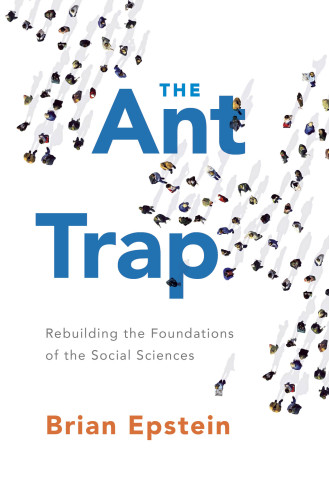The Ant Trap: Rebuilding the Foundations of the Social Sciences
Winner of the 2016 Lakatos Award
“Brian Epstein’s book is rated as ‘an extremely serious and significant book, as good a treatment of the social world as there is, by some way.’ It provides ‘an outstandingly elegant illustration of why metaphysical foundations really matter to the practice of science,’ and ‘opens the door to a more productive philosophy of social science than has hitherto been available.’ The arguments are ‘careful and rigorous,’ with ‘the right mixture of theory and examples,’ arriving at ‘quite original conclusions.’ The book is praised as ‘beautiful and engaging’, ‘original and ambitious’, ‘exemplary in its clarity’, and ‘extremely enjoyable to read.'”
– Lakatos Award Committee, London School of Economics
Winner of the 2016 American Philosophical Association
Joseph B. Gittler Award
“Brian Epstein’s book, The Ant Trap, is an exceptionally clear and well-crafted study of foundational issues in the social sciences. Epstein probes the deepest conceptual issues framing empirical work on social reality, drawing helpful distinctions between issues that can easily be run together, and offering creative alternatives to conventional assumptions about individuals and groups. A terrific contribution to contemporary scholarship on social theory.”
– Gittler Award Committee, American Philosophical Association

